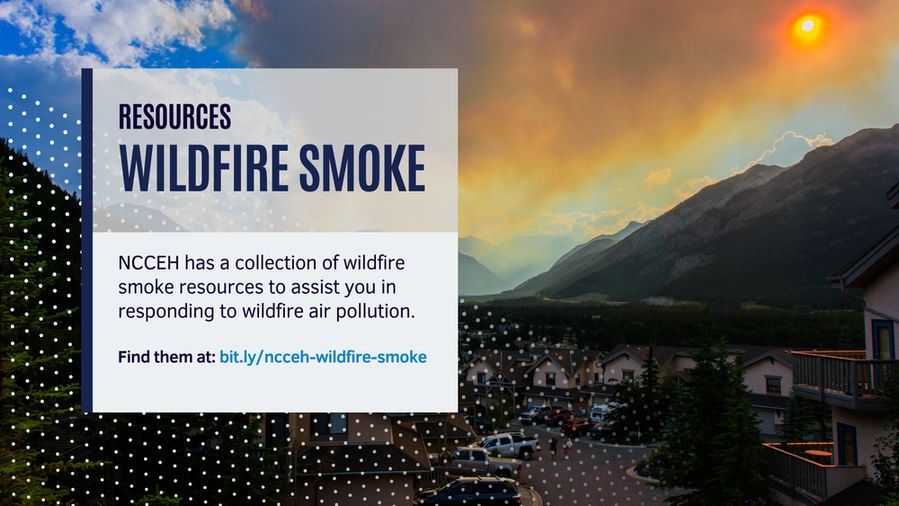ATS EOPH Assembly
@ats-eoph.bsky.social
72 followers
63 following
58 posts
Official ATS Environmental, Occupational and Population Health Assembly account. Follow if interested in environmental or occupational factors in lung disease!
Posts
Media
Videos
Starter Packs
Reposted by ATS EOPH Assembly
Reposted by ATS EOPH Assembly
Reposted by ATS EOPH Assembly
ATS EOPH Assembly
@ats-eoph.bsky.social
· Aug 12
ATS EOPH Assembly
@ats-eoph.bsky.social
· Aug 11

Scoping review on assessing climate-sensitive health risks - BMC Public Health
Background Climate change is making the existing health problems worse and also introducing new health problem and therefore calls for a wider evaluation of climate sensitive global diseases. The review sought to assess and collate quantitative and qualitative evidence on the effects of climate change on global health, more specifically, infectious and respiratory diseases, the impacts of extreme weather events as well as the implications for mental health with the view of establishing appropriate sustainable and resilience public health measures and policies. Methodology A scoping review of observational studies carried out between the years 2000 and 2024, synthesized information on climate-sensitive health outcomes: infectious diseases, severe weather events, and mental illnesses. This analysis was based on data from PubMed, Scopus, Web of Science and Cochrane Library, where appropriate, utilizing meta-extraction and Meta-analysis techniques. Results A total of 3077 studies were screened, and 96 articles were included for quantitative and qualitative analysis, highlighting the significant health risks posed by climate change. Key areas of concern identified include climate-sensitive infectious diseases, respiratory and cardiovascular conditions, food- and water-borne illnesses, and mental health effects. Rising temperatures and variable rainfall patterns increase the incidence of diseases like malaria (up to 50%) and dengue (8–10% per 1 °C rise). Extreme weather events, such as heatwaves and floods, contribute to a 30% rise in respiratory diseases and a 25% increase in cardiovascular conditions. Food- and water-borne illnesses are more prevalent in regions like Africa (30–40%) due to climate change. Additionally, climate change exacerbates mental health issues, leading to conditions like post-traumatic stress disorder (PTSD), anxiety, and depression. Conclusion and recommendations Climate change amplifies global public health risks, worsening diseases and creating new challenges. To address this, enhance machine learning climate sensitive disease surveillance, strengthen climate resilience health infrastructure, and integrate health into climate adaptation and mitigation strategies, promote sustainable agriculture, improve WASH infrastructure, and foster global collaboration.
bmcpublichealth.biomedcentral.com
ATS EOPH Assembly
@ats-eoph.bsky.social
· Aug 10

Extreme heat and pediatric health in a warming world: a space-time stratified case-crossover investigation in Ontario, Canada - Environmental Health
Background Globally, climate change is causing frequent and severe extreme heat events (EHEs). A large body of literature links EHEs to multiple health endpoints. While children’s physiology and activity patterns differ from those of adults in ways that are hypothesized to increase susceptibility to such endpoints, research gaps remain regarding the specific impacts of EHEs on child health. This study evaluated pediatric emergency healthcare utilizations associated with EHEs in Ontario. Methods Applying a space-time stratified case-crossover design, associations between EHEs (same-day or lagged exposure to 2 consecutive days of daily maximum temperatures above percentile thresholds) and 15 causes of pediatric emergency healthcare use in Ontario, Canada from 2005 to 2015 were analysed using conditional quasi-Poisson regression. In primary analyses, EHEs were defined as two or more consecutive days with temperatures above the 99th percentile of temperature within each respective forward sortation area (FSA). Emergency healthcare use was measured using hospital admissions as an indicator of severe outcomes, and emergency department (ED) visits as a sensitive measure of outcomes. Results Relative to non-EHE days, EHEs increased the rates of pediatric hospital admissions for respiratory illnesses by 26% (95% CI: 14-40%), asthma by 29% (16-44%); infectious and parasitic diseases by 36% (24-50%), lower respiratory infections by 50% (36-67%), and enteritis by 19% (7-32%). EHEs also increased the rates of ED visits for lower respiratory infections by 10% (0-21%), asthma by 18% (7-29%), heat-related illnesses by 211% (193-230%), heatstroke by 590% (550-622%), and dehydration by 35% (25-46%), but not for other causes. Admissions and ED visits due to injuries and transportation related injuries were negatively associated with EHEs. Neither all-cause hospital admissions nor ED visits were associated with EHEs. Conclusions In Ontario, EHEs decreased the rates of pediatric emergency healthcare utilization for injuries and increased the rates of respiratory illnesses, asthma, heat-related illnesses, heatstroke, dehydration, infectious and parasitic diseases, lower respiratory infections, and enteritis. Tailored policies and programs that reflect the specific heat-related vulnerabilities of children to respiratory and infectious illnesses are warranted in the face of a rapidly warming climate.
ehjournal.biomedcentral.com
ATS EOPH Assembly
@ats-eoph.bsky.social
· Jul 30

The impacts of e‐cigarette flavours: An overview of systematic reviews
Background and Aims E-cigarette flavours have the potential to impact the appeal, harms and use of e-cigarettes and combustible tobacco. Systematic reviews have synthesised evidence on their impacts...
onlinelibrary.wiley.com
Reposted by ATS EOPH Assembly
ATS EOPH Assembly
@ats-eoph.bsky.social
· Jun 29
ATS EOPH Assembly
@ats-eoph.bsky.social
· Jun 29
ATS EOPH Assembly
@ats-eoph.bsky.social
· Jun 28
ATS EOPH Assembly
@ats-eoph.bsky.social
· Jun 28

Exploring the Impact of Neuroticism on Lung Cancer Risk: Insights From Mediated Mendelian Randomization - PubMed
The results from this Mendelian randomization study provide robust evidence supporting a potential association between neuroticism and an increased risk of lung cancer. This association appears more p...
pubmed.ncbi.nlm.nih.gov
ATS EOPH Assembly
@ats-eoph.bsky.social
· Jun 27
ATS EOPH Assembly
@ats-eoph.bsky.social
· Jun 26











